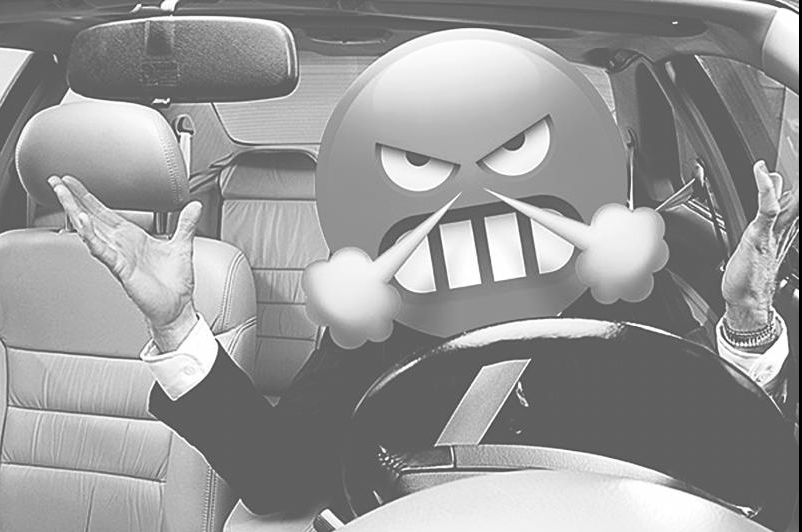ALTHOUGH road rage is considered a form of aggressive driving, it still differs from other forms because it is characterised by verbal abuse, threats or gestures, rather than physical violence.
There are numerous causes of road rage. Some experts suggest road rage is rooted in a combination of environmental and psychological factors.
Environmental factors include the amount of time spent commuting to work each day, the number of miles travelled per day and the presence of heavy traffic. Psychological factors include poor decision-making, anger management problems and mental health issues such as depression and anxiety.
A five-year research carried out by the Malaysian Institute of Road Safety Research shows that nearly 2.5 million drivers encounter road rage annually. This finding is consistent with several studies, which showed that up to one-third of people surveyed reported engaging in road rage at least once during their lifetime.
It is not safe to drive aggressively. Drivers who are aggressive may experience increased health risks due to high amounts of anxiety, tension and anger during these episodes. Chronic anxiety may lead to negative health consequences.
Road rage puts everyone else on the road at risk of accidents, which can turn into violent confrontations.
People who tend to exhibit aggressive driving behaviours have an elevated risk of having poor social skills. They are often perceived as always being angry. There may be frequent arguments with their social circle or they could get into physical altercations, face trouble at work, home or school, and have mood problems. They may also have medical conditions ranging from high blood pressure to heart diseases, strokes, ulcers and chronic pains.
You can help keep road rage at bay by being polite and respectful to other drivers. However, if you get angry when driving, there are ways to remain calm.
Here are six tips to keep in mind:
1. Do not let your emotions control your driving
You may feel frustrated, annoyed or irritated, but you should not let those feelings dictate how you handle traffic situations. Instead, try to remain calm and focused. This way, you can avoid making mistakes that can lead to dangerous situations.
2. Avoid distractions
It is easy to think about work or other problems when you are driving, which can cause stress or anxiety. Try to focus on the task at hand, such as keeping your eyes on the road ahead of you. You will be less likely to make errors if you pay attention to what is happening around you.
3. Breathe
Breathing can be used to clear your mind and release stress. It helps bring your attention inward and takes your mind off distractions.
4. Listen
Listening to music, podcasts and audiobooks can add excitement to your daily commute. Music can influence your driving experience, making your commute more pleasant by providing an interesting background for your journey. Podcasts and audiobooks can offer a mild distraction from the monotony of driving, which will make your commute less stressful.
5. Plan
When you are travelling, it is important to plan ahead and be prepared for delays. If you do not want to spend hours sitting in traffic, organise your schedule so you can travel early and arrive at your destination before rush hour begins.
6. Develop new ways of thinking (cognitive restructuring)
Changing the way you think about a frustrating situation by using rational thoughts, reasonable expectations and logic may improve how you view and react to an event.
It may be difficult to control road rage, but with the right mindset, you can learn to calm down and reduce your stress levels. Combining cognitive and relaxation techniques has proven effective at reducing road rage among high-stress drivers.
We all have a unique perspective on everything we encounter. We experience life through our senses, so whatever we do, it is all about “me”. This is not necessarily a negative thing, it is simply a part of being human.
When you are angry at a person, you are merely judging the person based on his behaviour towards you. By becoming more aware of the situation, you will find that you can see things from different points of view and gain new perspective, which can help reduce any anger you feel.
You do not have any control over other drivers. Remember this the next time you are experiencing a situation when you are driving. It can help with impulse management.
Road rage is an emotional response to road conditions. When drivers feel frustrated, they may lash out at others who are driving too close, tailgating them or cutting them off.
Drivers can also lose control of themselves if they are tired, hungry or stressed. In these situations, emotions take precedence over reason, and people often make poor decisions. To avoid getting into a dangerous situation, stay alert and keep your cool. Do not let anger cloud your judgement.
Dr Praveena Rajendra, Certified Mental Health and Awareness Practitioner specialised in Narcissistic Abuse Recovery. Comments: letters@thesundaily.com















